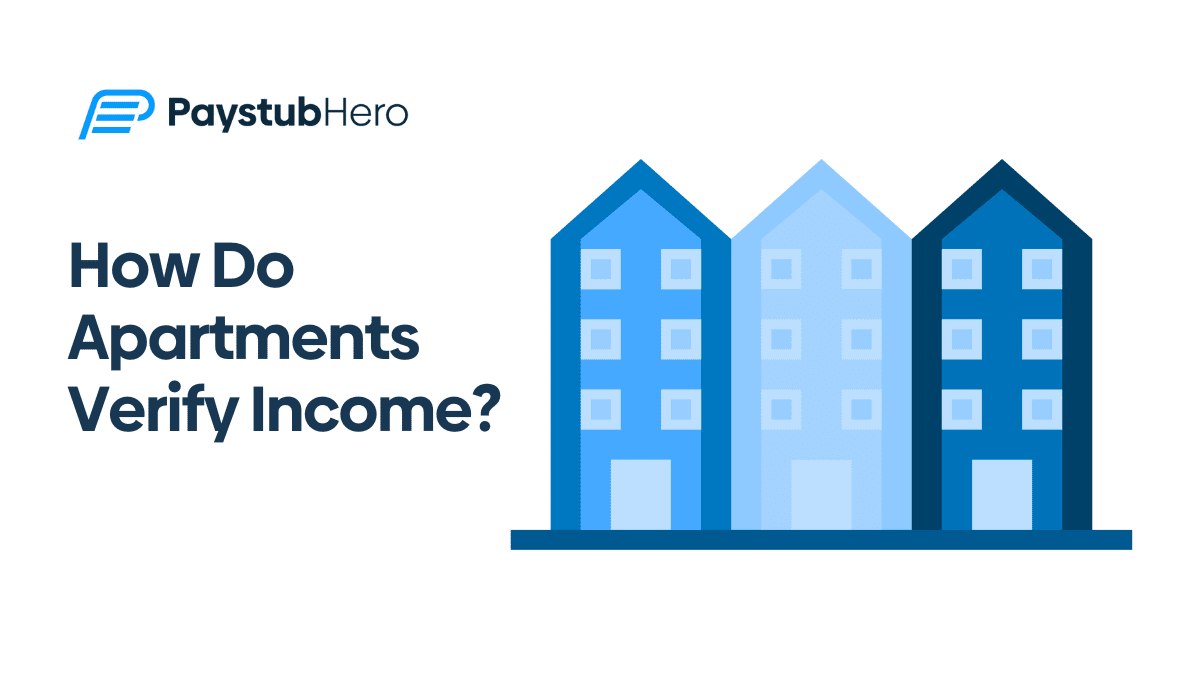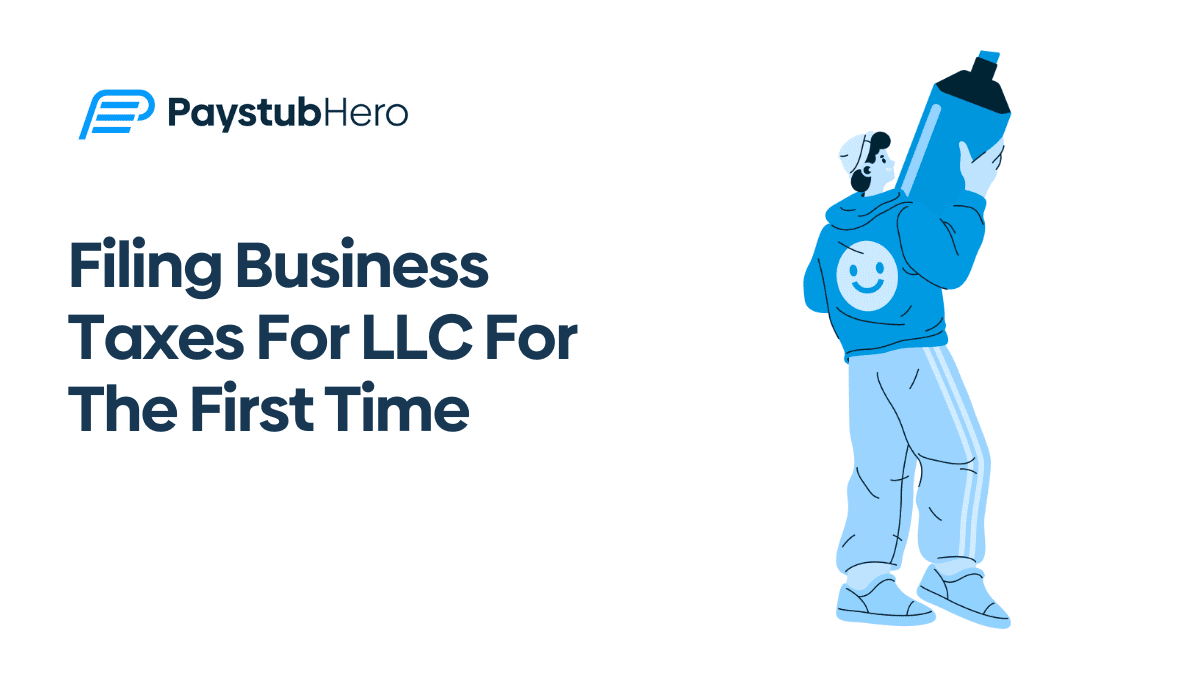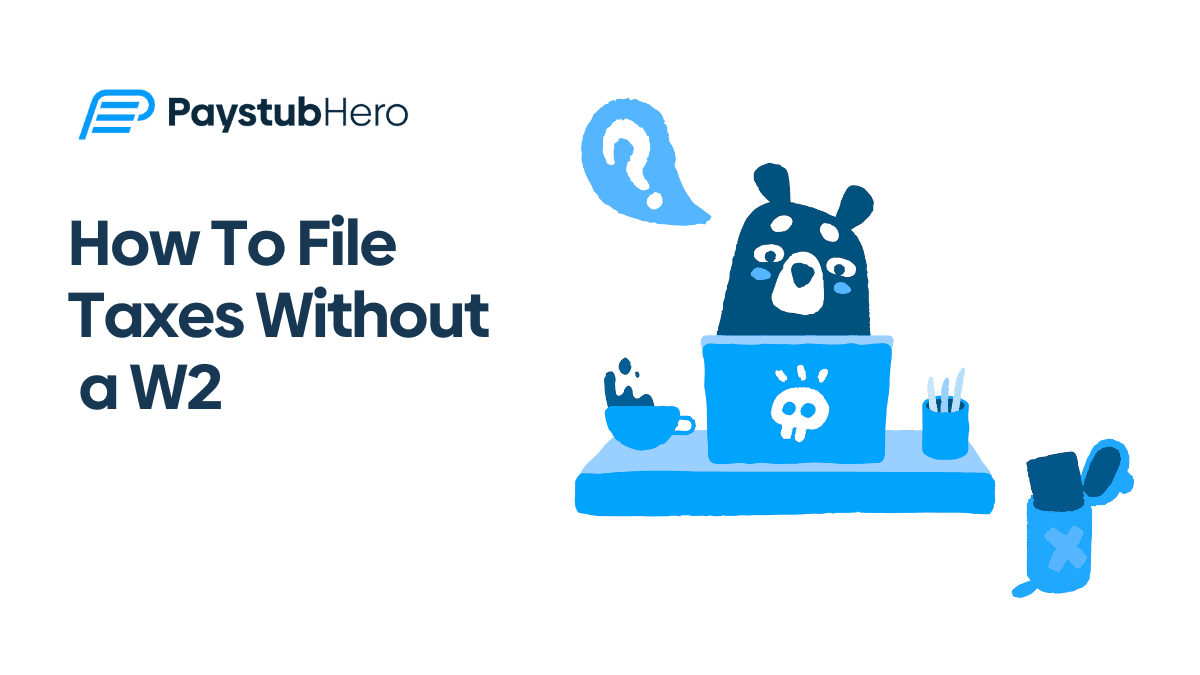In 2025, banks verify income by checking a few key documents, like recent pay stubs, tax returns, and bank statements. They might even contact your employer directly to confirm your salary or job stability.
Some landlords, meanwhile, use third-party services to double-check your financial details.
Continue reading to see how banks do this and what they specifically look for when verifying income.
How Do Apartments Verify Income?
Apartments verify income through several methods. Here’s a breakdown of how they do it:
1. Pay Stubs
One of the most common ways apartments verify income is by looking at your pay stubs. These show how much you earn, how often you’re paid, and what’s taken out for things like taxes. Typically, they’ll request the most recent ones to get a good sense of your income.
For example, if you’re paid every two weeks, your pay stubs will reflect that. This helps landlords determine whether your income meets their rent criteria.
If you’re self-employed, you may need to provide extra documents like invoices or a letter from your accountant to show your earnings.
2. Tax Returns
In some cases, especially if you’re self-employed or have irregular income, landlords may ask for your tax returns. Tax returns provide a year’s worth of financial data and show your total earnings after deductions.
This is particularly helpful if your pay varies month-to-month, as it gives a broader view of your financial situation.
For example, if you’re a freelancer or contractor, your income might fluctuate. Tax returns can show landlords that you’ve been making enough over the year to cover the rent.
3. Bank Statements
Another method landlords use to verify income is by looking at your bank statements.
Bank statements show your income deposits over time and give insight into your spending habits. By reviewing your bank statements, landlords can confirm that you consistently receive enough money to pay rent and bills.
A clear example is if your salary is directly deposited into your account, the landlord can see the regular deposits and how much you typically make each month.
4. Employment Verification
Some landlords may go the extra mile and contact your employer directly.
They’ll ask for confirmation of your job title, salary, and how long you’ve been employed. This is especially true for tenants who are new to the job market or in probationary periods.
If you’re self-employed or a gig worker, the process may differ slightly.
You may need to provide a letter of verification from your accountant or other official documentation.
5. Rental History
Finally, landlords might look at your rental history to check if you’ve been paying rent on time in the past.
This isn’t necessarily a direct verification of income, but it can help landlords see that you have a history of being responsible with your financial commitments.
What About Third-Party Services?
While most landlords follow the traditional methods above, some prefer to use third-party services to verify your income. These services can help landlords quickly assess your financial situation.
One of the most popular third-party verification services is Snappt.
Snappt: A Third-Party Service for Income Verification
Snappt is a service that landlords and property managers use to verify income and identify potential risks. It works by analyzing your documents—pay stubs, bank statements—and looking for signs of fraud, inconsistencies, or errors.
Landlord upload your financial documents through the platform, and Snappt scans them for anything that might raise a red flag.
For example, if there’s a mismatch in income amounts, or if it looks like a document has been altered, Snappt will alert the landlord.
Why Is Income Verification Important?
Income verification is important for both landlords and banks. Here’s why it matters:
⦿ Ensures Financial Stability
Income verification ensures you have the financial ability to meet your obligations. For landlords, it’s about confirming you can consistently pay rent. For banks, it’s about ensuring you can repay a loan.
By checking your pay stubs, and other financial documents, both landlords and banks can gauge your income stability.
⦿ Protects Against Fraud
Unfortunately, financial fraud is a real issue.
Some people might exaggerate their income to look more financially stable than they actually are. In fact, the Federal Trade Commission (FTC) reports that consumers lost over $10 billion to fraud in 2023, which is a 14% increase from the year before.
This is the first time fraud losses have hit such a high mark.
Income verification helps catch these false claims and protect both parties from financial loss.
⦿ Helps Avoid Overextending Credit
Another key reason banks verify income is to ensure they’re not lending more money than you can handle. For example, when applying for a mortgage, banks need to confirm you can afford the monthly payments along with other financial obligations.
Lenders use a common metric called the debt-to-income (DTI) ratio.
This is a percentage that compares your monthly debt payments (like loans, credit cards, and mortgages) to your monthly gross income. If your DTI ratio is too high, banks might decide that lending you money would be too risky.
They don’t want to overextend you financially.
⦿ Assesses Employment Stability
Are you employed long-term? Do you have a reliable job with steady income? This is where things like employment verification come into play.
Banks especially want to know that you have a secure, long-term source of income. If you’re in a probationary period at a new job or your contract is set to expire soon, they might view that as a risk.
⦿ Legal and Regulatory Requirements
In some cases, income verification is required by law. For example, if you’re applying for certain types of loans, financial institutions must verify that you have the means to repay what you borrow. Part of responsible lending practices.
This protects both the borrower and the lender from potential financial issues later on.
Similarly, landlords may be required to follow certain guidelines or regulations when screening tenants. These checks are designed to protect both parties and ensure that everyone is acting within the law.
How You Can Prepare for Income Verification
Now that you know why income verification is important, let’s talk about getting ready for it. Having the right documents ready can make things faster, whether you’re applying for a rental or a loan.
➼ Gather Your Pay Stubs:
Make sure you have at least the last two or three pay stubs on hand. These should clearly show your income, deductions, and employer details.
➼ Prepare Your Tax Returns:
If you’re self-employed, or if you have additional sources of income, keep your tax returns handy. These will help show your overall income.
➼ Get Your Bank Statements in Order:
Bank statements will help verify your deposits and give landlords or banks a full picture of your financial health.
➼ Employment Verification:
If your landlord or bank needs employment verification, be prepared to provide your employer’s contact information.
➼ Be Honest:
Always be truthful about your income. Providing false information can lead to rejection of your application or worse, legal consequences.
Need to Verify Your Income Smoothly?
PaystubHero makes it easy.
Whether you’re applying for a loan, renting an apartment, or just keeping your finances in check, having accurate pay stubs can make all the difference. With PaystubHero, you’ll get professional, reliable pay stubs tailored to fit your needs.
FAQs
Below are some of the most common questions about how apartments verify income.
Most apartments take a close look at things like your credit history, income, rental history, and background before giving you the green light for approval.








